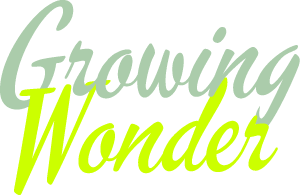As I was cleaning my book shelves I found myself holding two books of diametric interests although both were about young children. In one hand was a book titled First Delights by Tasha Tudor (1966). In the other hand was a much more current book titled Basics of Assessment: A primer for Early Childhood Educators by Oralie McAfree, Deborah J. Leong, and Elena Bodrova. The first book is about a little girl who lives on a farm and uses all her senses as the books takes the reader through the seasons of the year. The second book, published by The National Association for the Education of Young Children (NAEYC, 2004) is written to help guide early childhood educators through a process of assessing their young students.
I couldn’t help but stop in my tracts. How did this little book on assessment and others written with the same goal in mind take early childhood educators so far from the essence of early childhood education-the essence of raising good people who have deep connections to the world and to others; children who can problem solve; who have a strong sense of self, who can act with empathy, who love nature, and understand consequences, cause and effect, and the need for rules to guide our living together.
Now don’t get me wrong, I can also see the value of assessment, but it is the last bullet on my list. First and foremost on my list is building relationships, recognizing the child in front of me and knowing his/her family. As far as I can tell, assessment today is very caught up in assessing children’s cognitive abilities. If I understand what brain researchers are telling us of children’s brain functioning, little cognitive learning can take place until the child feels secure and comfortable. Please tell me how an environment that is focusing intently on assessment and forgetting all the other important pieces of quality education we once knew and cherished will result in good learning and the raising of good human beings?
Here is what I think happened and often happens when change is introduced . . . The pendulum swings too far to the new focus at the detriment of what we are currently doing with some success. The milieu changes as the focus changes. We, as early childhood educators need to be more in control and consciously aware of what is happening. We need to say to the funders who do not understand early childhood education that assessment is indeed important but it simply a part of an early childhood program. We need to return to looking at the seasons through the children’s eyes so we can both remember the wonderment of those moments and scaffold the children’s experiences by offering sensitive and beautiful provocation for children as they pass through the seasons year after year. What is the meaning of life? Where does beauty come from and how can I as an individual maintain a relationship with the world and the people who live upon it.
For me, the Tudor book offers early childhood educators a path toward raising good children that can help lead to a peaceful society. The book on assessment maybe guarantees that children can read, but personally, I don’t think this path is really working. What saddens me most is that so much money is being poured into producing assessment tools and the assessing itself as teachers pay remains below the pay of a gas station attendant. It is really time for better pay for educations. Demand for baccalaureate degrees in early childhood education from programs that offer appropriate courses. In my opinion, this is where the heads of leaders in early childhood education should be turned, not assessment and standards.
Yes, honesty, these thoughts came out of my cleaning my books shelves and finding myself holding those two distinct and dichotomous books.
